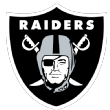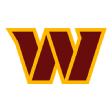Continuing a tradition that we began two years ago, we've taken a data-driven look at which NFL head coaches are sitting on the hottest seats entering the 2019 season.
We're not predicting which coaches will be fired; that involves two separate factors in how hot each seat is, and the fortunes of each team in 2019. Instead, we isolated the first factor -- the heat under all 32 seats -- by assuming they will all have the same losing season. Specifically, we presupposed every team would finish the year 4-12, and then asked our analytical model to make a projection on the fate of each coach.
Just as before, we trained our model using Pro Football Reference's data on all NFL coaching tenures since 1979. Unsurprisingly, the most important factor is the team's record from the present season, but there are a number of other factors that interact with each other within the model. Click here to read more about our methodology.
We've tested the model against every season for the past 40 years, and it's correct 80 percent of the time when using a cutoff of more than 50% predicting a firing and less than 50% predicting retention. At the end of last season, the model was accurate on four of the five most likely coaches to be replaced. Time ran out for Todd Bowles (73%) with the New York Jets after three straight losing seasons. Steve Wilks (61%) was let go after a single two-win campaign for the Arizona Cardinals in 2018. After defying the model's predictions for years, Marvin Lewis (60%) saw his long tenure with the Cincinnati Bengals finally come to a close after three straight losing seasons. Dirk Koetter (54%) was replaced by the Tampa Bay Buccaneers following two down years. Only the San Francisco 49ers' Kyle Shanahan (54%) survived among the model's top five. Much of the blame for 2019's weak record could be blamed on the injury to quarterback Jimmy Garoppolo.
The other coaches replaced after last season were Adam Gase (39%) with the Miami Dolphins and Vance Joseph (38%) with the Denver Broncos. Gase's seven-win 2018 season wasn't enough to save his job, and Joseph's one-win improvement over 2017 ended his tenure after two seasons.
These are the hottest seats entering 2019, assuming a four-win season:

1. Sean McDermott, Buffalo Bills
Chances of being fired: 73%
A four-win season would mean two consecutive years of steady decline for the Bills after their first playoff appearance in nearly a generation in 2017, which was McDermott's first season in charge. Young quarterbacks are expected to make a significant jump in their second full season, so if the Bills' offense stumbles in 2019, much of the blame probably will be laid at the feet of the coaching staff, not second-year quarterback Josh Allen.
Although not part of the model, the league has seen coaching changes salvage the early careers of Mitchell Trubisky in Chicago and Jared Goff in Los Angeles, so that will be on the minds of Buffalo's decision-makers.

2. Doug Marrone, Jacksonville Jaguars
Chances of being fired: 71%
Marrone's situation is similar to McDermott's, as he's entering his third full season and has seen his team's fortunes decline from making the playoffs in his first season. Another season headed in the wrong direction, especially with a talented roster and an expected upgrade at quarterback with Nick Foles, would make a fourth season unlikely.
The only distinction the model sees between Marrone and McDermott is that Marrone had a better postseason run in 2017.

3. Brian Flores, Miami Dolphins
Chances of being fired: 67%
Gone are the days when NFL coaches were given at least two years to prove themselves, if they even existed at all. The list of one-and-done coaches continues to grow and now includes Wilks, who was fired after a single season in Arizona.
Ironically, Flores inherits Wilks' quarterback, Josh Rosen, who struggled behind a poor offensive line last season. Because of that situation, I would take Flores' 67% estimate with a grain of salt. But part of the reason that number is so high for a first-year coach is that Miami won seven games in 2018 -- good for second place in the AFC East -- so the expectations in the model might be a little higher for him than new coaches who join teams residing at the bottom of the standings.

4. Mike Vrabel, Tennessee Titans
Chances of being fired: 66%
Vrabel's situation is unusual in that he took over a team that won a playoff game in 2017. Last season, the Titans were able to match 2017's regular season win total of nine but missed out on a playoff berth.
A four-win campaign in 2019 would be a deep disappointment for Tennessee and a sharp fall from the team's recent baseline.

5. Mike Zimmer, Minnesota Vikings
Chances of being fired: 66%
Zimmer, entering his sixth season leading the Vikings, has enjoyed some significant success, but his team has been inconsistent. A very poor 2019 would mean a second straight season of steep decline for a team that was nearly championship caliber in 2017.
Unsurprisingly, consecutive years of decline seem to be a key predictor for a coach being fired. I can tell you from our pass block win rate metric that Minnesota's most glaring need is along the offensive line. The team invested a lot of resources into free-agent quarterback Kirk Cousins last offseason, so the heat is on the coaching staff to help make that pay off. Zimmer, whose background is on defense, will need to find the right formula to improve his offense.

6. Jon Gruden, Oakland Raiders
Chances of being fired: 61%
With all due apologies, our model does not know about 10-year monster coaching contracts, so it's unlikely Gruden loses his job after a second four-win season. But it is instructive to know that if he had a contract similar to most other coaches, he'd probably be let go.
Last year's sequence of unpopular personnel decisions would usually turn up the temperature for him, but he has the luxury of thinking long-term, so he should have time for the Raiders' recent draft haul to develop.

7. Jay Gruden, Washington Redskins
Chances of being fired: 61%
Just a half percentage point behind his brother is the other Gruden, who has finished between 7-9 and 9-7 in each of the past four seasons. Last season's losing record can be forgiven, though. By season's end he was down to his fourth starting quarterback, Josh Johnson, after a run of injuries. Gruden admitted in May that he won't be back unless he makes the playoffs this season.

8. Bill O'Brien, Houston Texans
Chances of being fired: 56%
This is a hard one to explain. O'Brien is only one season removed from 11 wins and an AFC South title, so one bad season isn't going to turn the tide against him. But that's just it -- expectations are what matters. His roster is talented, so a precipitous drop to four wins would raise questions about his tenure.
Unlike other coaches coming off playoff appearances, O'Brien doesn't have the same pedigree of success that would otherwise guarantee his job. The turbulence in the Texans' front office counts against him in our model, which considers only whether the current general manager (or de facto GM) who hired each coach is still in place. In this situation, however, O'Brien seems to be the senior authority in Houston.
Lukewarm seats
No coach is completely safe, especially after a down season for his team. Most coaches not noted above fall in the 30% to 50% range in this exercise. Pete Carroll (Seattle Seahawks), John Harbaugh (Baltimore Ravens), Jason Garrett (Dallas Cowboys) and Ron Rivera (Carolina Panthers) are notable coaches in that range. These are cases in which a long tenure can start to count against a coach, especially with inconsistent success in recent seasons. They each have distinguished résumés but might want to consider updating them in the event of a disappointing season in 2019.
The next most vulnerable group tends to be all of the first- and second-year head coaches. The safest coaches are the ones you'd expect -- Sean McVay, Doug Pederson, Sean Payton (who reset his clock with a strong 2017 and even stronger 2018), Bill Belichick and Mike Tomlin. Even that group is given a 10% to 20% chance by our model. It might seem crazy, but there are more than a few examples of coaches fired with relatively stellar records. Jimmy Johnson of the Cowboys and Marty Schottenheimer (of multiple franchises) are the most prominent.
As always, every case is unique, and there are important aspects of each that even a sophisticated mathematical model can't consider. You can think of this exercise as a measure of how unexpected or unprecedented it might be to replace a head coach given his résumé.
Methodology
While the team's record is obviously of critical importance to whether a coach is fired, here are the other factors taken into account by our model:
The degree of decline or improvement from the previous season -- this is almost as important in our model as this year's record. The fact that GMs and owners are much more likely to pull the trigger after a team fails to meet expectations is hardly surprising, but it's important to note that a coach who goes from 3-13 to 5-11 is less likely to be fired than a coach who slips from 9-7 to 5-11.
The next most important factor is the coach's long-term record with the team, represented by his rolling average winning percentage for the past two to five seasons.
Playoff success matters. The model looks at how long it has been since a coach made the playoffs, and the number of seasons since a playoff victory. The recency of a playoff appearance appears slightly more important than that of a playoff win.
Did the current GM hire you? The thinking here is that a general manager (or whoever has the hiring and firing authority) is more likely to cut ties with his predecessor's coaching hire. Coaches generally have a 25% chance of getting fired when working with a GM who didn't hire him, as opposed to 18% when the current GM is the one who did.
Tenure has an impact on the model, but not in a straightforward way. Whether you've been the coach for a long time or you just arrived, the data still relies on a combination of other factors to determine whether your seat should be hotter.
I also included Super Bowl appearances/victories as factors, but they turned out to be the least important. Coaches with a Super Bowl appearance or victory on their résumé aren't given much extra slack.
